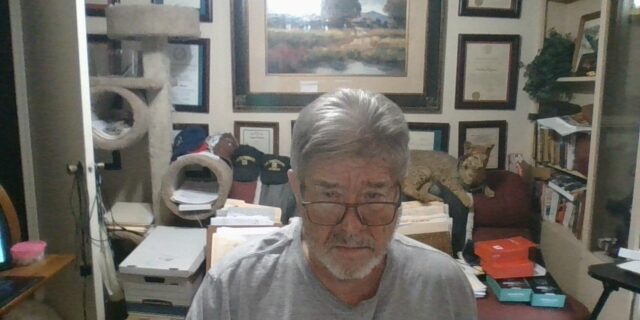Back in the early 1900’s Britain calculated she could easily break up the tottering Ottoman Empire in order to get Mesopotamia with Kirkuk an
As the corespondent Rolf Nef wrote: “It didn’t quite turn out as hoped by London. Instead of being a war lasting a few weeks as had been expected, the undertaking was huge and costly, lasted over four years, cost millions of lives and was fought on a global theater.”
It specifically all started at the end June (1914) when the Prince of Austria, Francis Ferdinand, heir to the Austro-Hungarian Empire, got shot in Sarajewo. That event started the war with the declaration of Austria against Serbia, whi
With the world preoccupied with war, Ottoman Turks took the opportunity to exterminate millions of non-Muslims in the Greek Genocide, Assyrian Genocide and Armenian Genocide.
As the war progressed, longer than anyone had anticipated, the British grew desperately short of ammunition. Jewish biochemist Chaim Weizmann developed a bacterial fermentation process of ethanol-butanol-acetone which greatly helped Britain in manufacturin
This was countered by the German “Haber-Bosch process,” developed by Fritz Haber and Carl Bosch, whereby synthetic ammonia was extracted from the atmosphere and used to produce nitrates needed to manufacture their explosives.
The American ship Lusitania had been the largest and most sumptuous passenger ship in the world at the time. Though President Woodrow Wilson’s re-election slogan was “He Kept Us Out of War,” the United States was covertly supplying ammunition to the British. Intelligence sources leaked that the Lusitania, in addition to passengers, was used to transport ammunition to the British.
The Imperial German Embassy published advertisements in 50 American newspapers warning passengers not to board the Lusitania. On May 1, 1915, the Lusitania departed from New York to Liverpool, England, sailing south of Ireland in an area Kaiser Wilhelm’s Imperial forces had declared a “war zone.” On May 15, a German U-boat fired a torpedo which struck the Lusitania, and it sank in 18 minutes, killing 1,198. The crisis caused an immediate change in public opinion and the United States entered World War I on APRIL 6, 1917.
In 1917, American troops began arriving in Europe at the rate of 10,000 a day to fight ‘the Hun.’ Some of the American soldiers were infected with the Spanish Flu. In January 1918, American soldiers at Fort Riley, Kansas, were reportedly inoculated with an experimental bacterial meningitis vaccine before being sent to Europe, where they were in close quarters and unsanitary conditions.
The website www.army.mil published (May 19, 2017) “Scientists learn history of Spanish Flu at Fort Riley”: “With the assistance of director of military affairs at Kansas State University, scientists received the history of the H1N1 Influenza, or Spanish Flu, that struck Fort Riley and spread across the world in 1918. Fort Riley is believed to be the origin of the world-wide epidemic that killed millions, said Robert Smith, director of the museum division at Fort Riley. ‘It was probably the greatest pandemic the world has ever seen,’ he said. ‘They (researchers) think it killed between 2 and 4 percent of the world’s population. It was even greater than the bubonic plague back in the 14th century.'”
The United States enlisted 4 million soldiers and spent 35 billion dollars. World-wide, over 70 million military personnel were mobilized.
George M. Cohen wrote the popular song, “Over There,” for which he was awarded a Congressional Gold Medal by President Franklin Roosevelt in 1936:
(“Over there, over there, Send the word, send the word over there
That the Yanks are coming, the Yanks are coming
The drums rum-tumming everywhere. So prepare, say a prayer,
Send the word, send the word to beware – We’ll be over, we’re coming over,
And we won’t come back till it’s over, over there.”)
On May 30, 1917, President Woodrow Wilson addressed the Grand Army of the Republic: “In the providence of God, America will once more have an opportunity to show the world that she was born to serve mankind.”
Germany’s Red Baron dominated the skies.


Eddie Rickenbaker joined the U.S. 94th Aero Pursuit Squadron and shot down 26 German planes.

On November 7, 1917, President Woodrow Wilson issued a Proclamation of a National Day of Thanksgiving and Prayer: “Even in the midst of the tragedy of a world shaken by war and immeasurable disaster we can see the great blessings God has bestowed upon us. We have been given the opportunity to serve mankind as we once served ourselves in the great day of our Declaration of Independence, by taking up arms against a tyranny that threatened to master and debase men everywhere. Our duty not only to defend our own rights as a nation but to defend also the rights of free men throughout the world.”
On October 8, 1918, an American battalion was pinned down by machine gun fire along the Decauville rail-line north of Chatel-Chehery, France. The Germans were along a ridge with 32 machine gun nests in a row. If they could be dislodged and defeated, it would be a turning point in the war. However, they were so well defended that American troops could not overcome them.
That is when it is my opinion that God directly intervened. That part of the whole American army was just stopped and pinned down. Then one single Americn soldier walked up there and started at on end of the ridge and cleaned-out that entire German force by himself, alone. His name was Alvin C. York. He became our greatest hero of WW1. He was just an uneducated country boy. Here is what happened as related in his own recorded words. (See how much you think God was involved.):
Sergeant Alvin. C. York described: “The Germans got us. They stopped us dead in our tracks. Their machine guns were up there on the heights overlooking us and well hidden, and we couldn’t tell for certain where the terrible heavy fire was coming from. Those machine guns were spitting fire and cutting down the undergrowth all around me.”
With all but 8 of his whole platoon killed, Sergeant York took charge and proceeded to take out all 32 machine guns, kill 28 of the enemy and take 132 captive. Sergeant Alvin. C. York received the Medal of Honor. His story, edited by Tom Skeyhill, was printed in The Washington Post, March 17, 1929: “Some of them officers have been saying that I being a mountain boy and accustomed to the woods done all these things the right way jes by instinct.
I hadn’t never got much larnin’ from books, except the Bible. Maybe my instincts are more natural, but that ain’t enough to account for the way I come out alive, with all those German soldiers raining death on me. I’m a-telling you the hand of God must have been in that fight. Jes think of them 30 machine guns raining fire on me point-blank from a range of only 25 yards and all them-there rifles and pistols
Sargent York said further: “When you have God behind you, you can come out on top every time”; and “The fear of God makes a hero; the fear of man makes a coward.”
Sergeant Alvin C. York received a host of awards for his World War I heroism, most notably the Medal of Honor for capturing 132 German soldiers and destroying those machine gun nests. He was also awarded the French Croix de Guerre and the French Legion of Honor. Additionally, he received the World War I Victory Medal and was later awarded the American Campaign Medal for his service during World War II.

Sergeant York’s story was turned into the movie ‘Sergeant York’ starring Gary Cooper. The highest grossing movie of 1941, York donated his proceeds to fund a Bible college, The York Bible Institute.
On November 11, 1918, the war ended with the signing of the Armistice. World War I left combined casualties of nearly 18 million killed or missing and 20 million wounded.
Five days after the signing of the Armistice, President Wilson proclaimed a National Day of Thanksgiving and Prayer: “Complete victory has brought us, not peace alone, but the confident promise of a new day. God has indeed been gracious. While we render thanks for these things, let us not forget to seek the Divine guidance in the performance of those duties, and divine mercy and forgiveness for all errors of act or purpose. Therefore, I, Woodrow Wilson, President of the United States of America, do hereby designate a day of thanksgiving and prayer, and invite the people throughout the land to cease upon that day from their ordinary occupations and in their several homes and places of worship to render thanks to God, the Ruler of Nations.”
President Wilson said in his 6th Annual Address, December 2, 1918: “What we all thank God for with deepest gratitude is that our men went in force into the line of battle just at the critical moment when the whole fate of the world seemed to hang in the balance.”



